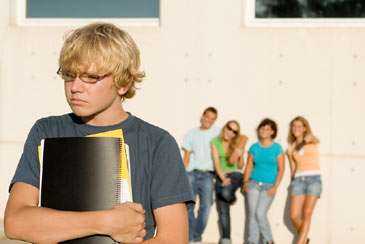Find information on cliques at school, how they affect your child, and what you can do to help if your child is being targeted by a group of kids.
In this article, you will find:
Forming positive friendship circles
Having a stable, close-knit group of friends can, of course, be beneficial to a child. Friendships are a part of normal adolescent development, and can help a child to develop a sense of belonging. In fact, NYUCSC found that cliques provide a social niche and can boost self-confidence, by helping a child to develop an identity and feel wanted. Cliques become a problem when the members start being nasty to outsiders, putting them down through backstabbing, taunting, and in some cases, violence. It is essential to educate children on the importance of accepting others. Cliques don't have to be bad, so long as its members know the boundaries that should never be crossed, such as putting others down to impress the group. With your support and guidance, your child can work out healthy ways to connect with friends and accept others in school.

